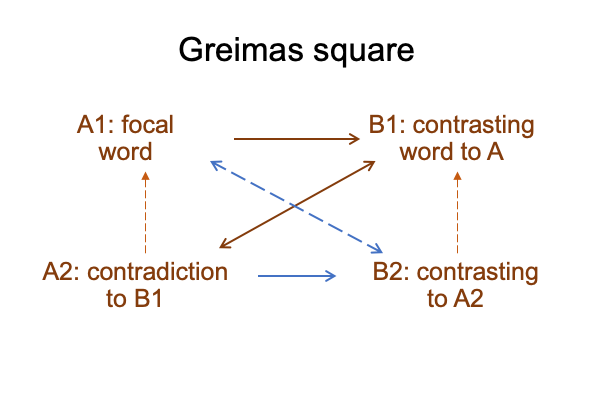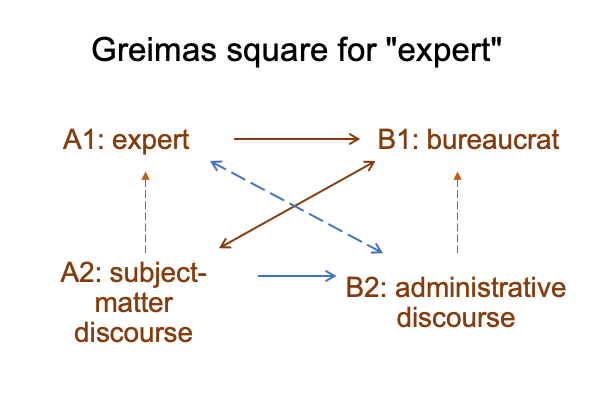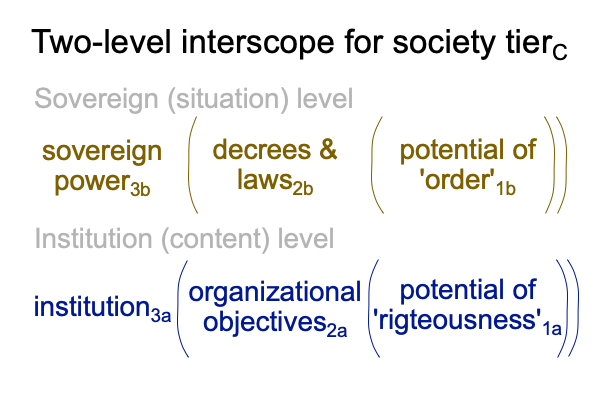Looking at Josh Hammer’s Opinion Piece (2021) “…Experts” (Part 1 of 4)
0001 Josh Hammer authors an opinion piece for The Epoch Times. Zerohedge reprints the opinion on Friday, June 4, 2021 at 9:00 p.m. The full title is “Covid-19 Has Forever Destroyed America’s Trust in Ruling Class ‘Experts'”.
0002 I only want to look at the first paragraph.
0003 I will look at this paragraph in two ways.
First, I will use the Greimas Square. The Greimas Square is introduced in Comments On Philip Marey’s Post (2021) “Insurrection”, appearing in this blog in January 2021. To date, no series has been generated for the Greimas Square in smashwords.
Second, I will use the first two levels of the society tier. The two-level interscope is introduced in A Primer on Sensible and Social Construction (available at smashwords). The society tier is posited in the masterwork How To Define the Word “Religion” (also available at smashwords).
The two-level interscope recently appears in this blog with Saturn-Jupiter Conjunction in Aquarius (Jan. 2021), Be Little Men (Sept. 2020) and Comments on Yoran Hazony’s Post (2020) “Challenges of Marxism” (Sept. 2020).
0004 Here is the first paragraph of Josh Hammer’s opinion piece, reproduced for examination in the following two blogs. There are three sentences in this paragraph. I present them in sequence.
Hammer writes, “As even many casual observers of America’s fractious politics are aware, the overwhelming majority of lawmaking at the federal level no longer takes place in Congress as the Constitution’s framers intended.
“Instead, the vast majority of the ‘rulemaking’ governing Americans’ day-to-day lives now takes place behind closed doors, deep in the bowels of the administrative state’s sprawling bureaucracy.”The brainchild of progressive President Woodrow Wilson, arguments on behalf of the administrative state are ultimately rooted in, among other factors, a disdain for the messy give-and-take of republican politics and an epistemological preference for rule by enlightened clerisy.”



